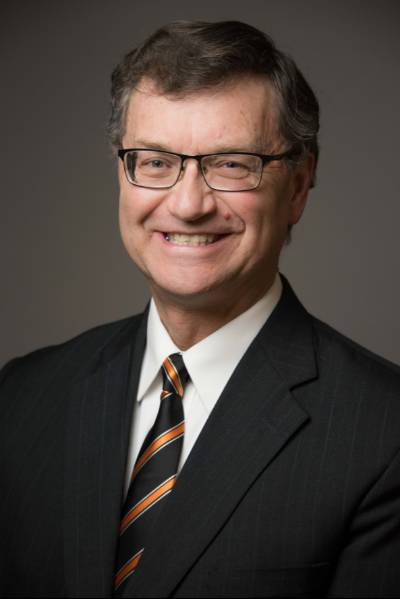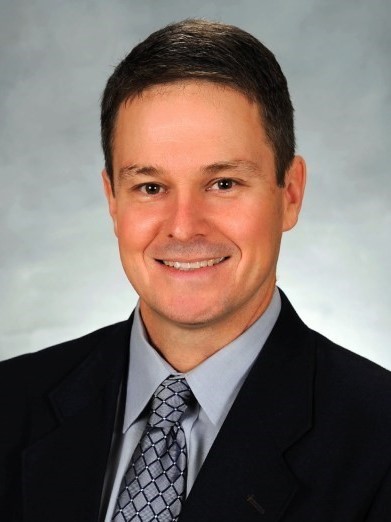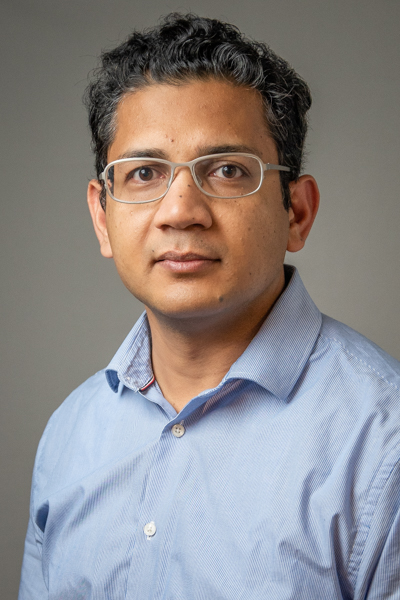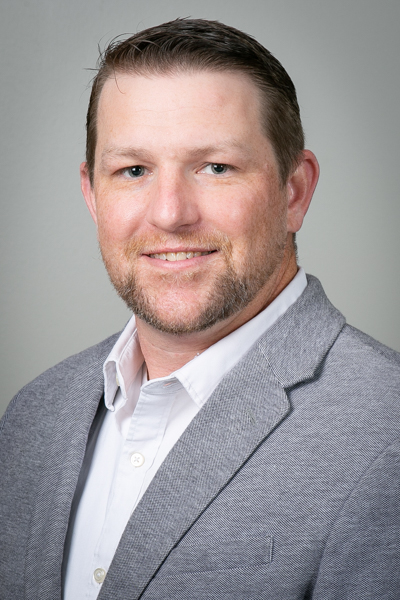Doctor of Philosophy (PhD) in Biomedical Sciences
Regenerative and Rehabilitation Sciences (RRS) Track
Track Summary: Regenerative and Rehabilitation Sciences (RRS) encompasses a highly interdisciplinary field of study that involves knowledge from diverse fields such as physiology, medicine, genomics, neuroscience, movement sciences, engineering, community and family systems, health services, and epidemiology. The knowledge from these varied disciplines is integrated with the foundational sciences of rehabilitation clinical practice and translational research, and is aimed at enhancing injury prevention, increasing activity, improving tissue regeneration/repair and function. RRS spans the entire life course, from infancy to geriatric populations, and addresses a wide variety of acute and chronic physical conditions that may negatively impact people’s abilities to perform daily activities and participate in their lives fully. The overall goal of RRS is to promote health and wellness among persons with or at risk of developing disabilities or persons with acquired pathophysiology and disease so that participation in daily life can be enhanced.
Overview: Research training in the health professions is necessary to provide needed university academicians in that can advance the fields of rehabilitation and repair/regeneration of tissue after acute or chronic injuries. Patient health is central to all rehabilitation, so the ability to recover from either injury or disability can be impacted by underlying pathophysiology such as cancer, diabetes, obesity, cardiovascular disease and aging. College of Health Professions and related disciplines are increasingly offering PhD preparation in the regenerative and rehabilitation sciences area. Study in regenerative and rehabilitation sciences currently represents a significant expansion of the student’s research training that extends beyond professional students obtaining a PhD after completing their degree (e.g., DPT, OTD, MOT) that is closely aligned with their professional degree and emphasizes clinical environment research skills. Thus, the RRS track offers an innovative opportunity for student training in research who can then pursue clinical and academic research careers within the health professions.
Goals: The goal of our RRS track is to prepare graduates with the skills needed to become successful educators, researchers, and innovators in the field of regenerative and rehabilitation sciences. Our graduates will develop strong research, teaching, and leadership skills which are essential for a successful academic career involving a high commitment in research and teaching. Through didactic training and mentored research activities, the RRS student will develop the skills needed to become an independent scientist. Graduates will have developed the skills needed to teach in higher education, conduct research, and disseminate scholarly research work to peers, colleagues, and the community.
Program Information
The Ph.D. program in Biomedical Sciences with a research track in Regenerative and Rehabilitation Sciences (RRS), allows for an integrated, interdisciplinary, research-oriented graduate program in which students train in faculty laboratories that have a focus in modern approaches to rehabilitation. As is the case in all tracks within Biomedical Sciences, all students complete a core curriculum of nine credit hours. Biostatistics and ethics are required of all students. The remaining courses will complete 6 credits in electives and a research dissertation. Students will take didactic course work the first year and begin working with a PhD advisor. During the second year, students select their dissertation committee of five faculty members who can best guide them through their graduate research. Also, during the second, or third, year students will complete an admission-to-candidacy exam. Students will compete the goals of an approved research proposal and provide a written document and an oral defense of the student's dissertation following the research phase of his/her training.
Mentorship: The PhD track in RRS is designed to prepare individuals for careers in research. The program is built around a mentorship model, reflecting our belief that preparation for independent research and scholarship can best be achieved by participating in ongoing research with guidance from the conducting faculty member. The student initially assists the faculty mentor with a specific inquiry. As the student’s expertise increases a related line of investigation with the faculty mentor is identified, which will be pursued for the dissertation under the mentor’s guidance and research funding. The doctoral student’s experience will be enriched by the faculty mentor’s larger research program. Students must commit to a full-time, consistent involvement in their mentor’s research program. To the extent that individual faculty members research programs can differ in focus and methodology, student research activities may vary. The faculty mentor will serve as a professional role model during the student’s time in the program and provide the student guidance in the development and achievement of their professional and academic goals.
Students will work with a particular faculty member in an identified area of research within RRS. Students may choose to perform rotations within the RRS track or other tracks within the Biomedical Sciences program. Students that choose a permanent mentor outside of the RRS track may switch tracks after consultation with respective track and program directors. Once the student has chosen their mentor a mentorship plan will be developed, which specifies learning goals, performance expectations, and required tasks. For example, the mentorship relationship is likely to involve the student working on the mentor’s research project; the mentorship plan would indicate work schedule, responsibilities, and supervision format.
The Biomedical Sciences research track in Regenerative and Rehabilitation Sciences will focus on areas related to the neurobiology and pathophysiology of rehabilitation. Neurobiology related areas of RRS involves the neurophysiology, neuroanatomy, behavioral neuroscience and biomechanics that can impact movement and mobility. The pathophysiology area of RRS explores how pathophysiological conditions (aging, cancer, metabolic diseases, cardiovascular diseases etc.) can alter physical function, movement and mobility through the disruption of muscle, bone, cardiac and/or vascular tissues. The study of these processes at the cellular and molecular levels is critical to understand the mechanisms driving pathological changes to tissue and organ function. Furthermore, this knowledge is required for the development and refinement of therapeutics and interventions aimed at reducing dysfunction, improving mobility, and increasing tissue regeneration after either injury or periods of disuse.
The Regenerative and Rehabilitation Sciences track is composed of Integrated Biomedical Sciences Program faculty who are involved in research related to either the neurobiology or pathophysiology of rehabilitation. The pathophysiology of rehabilitation involves cutting-edge research on diverse topics, including cancer cachexia, sarcopenia, stroke, heart failure, diabetes and metabolic diseases and other conditions which cause muscle wasting conditions leading to reduced function and mobility. Investigations are conducted at the cellular and molecular levels on specific topics such as atrophic signal transduction, epigenetic control of muscle wasting, mitochondrial dysfunction, and cell death. The neurobiology of regenerative and rehabilitation concentration is involved in innovative research on diverse topics, including sensory processing required for movement, prosthetics in movement, and movement disorders associated with disruptions of neural input such as stroke and Parkinson’s disease. Techniques will include biomechanical assessment so of function, gait patterns, fatigue, EMG, optical imaging and neurophysiology, neuroanatomy, and behavior. Research is conducted in both humans and preclinical animal models of diseases.
The RRS track follows the published guidelines for the Biomedical Sciences Program which can be found here.
Required Curriculum
The required coursework for the PhD program includes credits in core, cognate, elective courses, and research milestones including the successful completion of a Comprehensive Exam and a Dissertation Defense. All IBSP students must complete a minimum of 9 credit hours of core courses, as specified below. A biostatistics course is also required. The Integrity in the Conduct of Scientific Research course (IP 801), required of all Ph.D. students, will not be considered as part of the core curriculum. All IBSP students will take Essentials of Cell Biology (IP 841). In consultation with their Faculty Mentor and RRS PhD Track Director, students interested in neurobiology aspects of RS will be able to take either Biochemistry (IP 806) or Functional Neuroanatomy (ANAT 827), and either Essentials of Molecular Biology (IP 805) or Behavioral Neuroscience (ANAT 841). In consultation with their Faculty Mentor and RRS PhD Track Director a minimum of 6 elective credit hours to supplement the core curriculum will be taken.
In addition to the core and elective courses, first-year students will participate in a weekly seminar course (IP 810) where they learn how to read, discuss and present a recent scientific journal article. Students in the RRS track must take at least 4 semesters of Regenerative and Rehabilitation Science Seminar (1 credit hour, RS 919), and complete 24 credit hours of Doctoral Dissertation and Research (IP 900).
Core Curriculum
Overall IBS and Regenerative and Rehabilitation Sciences Track Requirements
- Biostatistics (2 credit hours) -- BIOE 845, Spring
- Integrity in the Conduct of Scientific Research (1 credit hour) -- IP 801, Spring
Core Required courses in Regenerative and Rehabilitation Sciences track (9 credit hours)
- Essentials of Cell Biology (3 credit hours) -- IP 841, Fall
- Biochemistry (3 credit hours) -- IP 806 Fall or Functional Neuroanatomy: (3 credit hours) -- ANAT 827, Fall
- Essentials of Molecular Biology (3 credit hours) IP 805, Spring semester or
Behavioral Neuroscience: (3 credit hours) -- ANAT 841, Fall even-numbered years
Electives (6 credit hours)
- Cellular Neuroscience (3 credit hours) -- ANAT 823, Spring odd-numbered years
- Developmental & Molecular Neurobiology (3 credit hours) -- ANAT 825, Spring even-# years
- Pathobiology of Cancer (3 credit hours) -- IP 940, Fall
- Bioinformatics I (2 credit hours) -- MSCI 814, Spring
- Bioinformatics II (1 credit hour) -- MSCI 815, Spring
- Cellular Signaling (3 credit hours) -- MSCI 861, Spring
- Techniques in Molecular Biology Research (4 credit hours) -- MSCI 929
- Immunity and Inflammation (3 credit hours) -- MSCI 931 Fall
- Techniques I: Biochemical and Cellular Methods (2 credit hours) -- MSCI 934, Spring
- Techniques II: Methods for Nucleic Acids Fall (2 credit hours) -- MSCI 935
- Physiology and Biophysics (Medical Physiology) (5 credit hours) -- PHYS 612, Spring
Students will participate in a minimum of two and maximum of six, 6-week-long laboratory rotations starting in September of the first year. During the rotations, students will work in the labs of individual Biomedical Sciences faculty who are interested in taking a student that particular year. RRS students may choose a mentor after their second rotation and begin their dissertation research.
Toward the end of the second year, students will complete admission-to-candidacy, which involves writing a grant proposal in NIH F31 format and successfully defending the proposal to their Faculty Committee. The committee will examine the student’s preparedness to pursue a Ph.D. in the Biomedical Sciences program. This will require student knowledge in the chosen research topic as well as in the core curriculum and related topics. The committee then votes pass or fail. This should be completed by May 15 of the second year. If a student is unsuccessful in the first attempt, he/she may retake the exam during the fall of the third year.
YEAR 1
Fall Semester
Essentials of Cell Biology (3 credit hours) -- IP 841, Fall
Biochemistry (3 credit hours) -- IP 806 Fall or Functional Neuroanatomy: (3 credit
hours) -- ANAT 827, Fall
Lab Rotation (1–4 credit hours)--IP 900
Biostatistics for IBS (2 credit hours)--BIOE 845 (Spring)
Spring Semester
Essentials of Molecular Biology (3 credit hours) IP 805, Spring semester or Elective
Course (3 credit hours)
Elective Course (3 credit hours)
Integrity in the Conduct of Scientific Research (1 credit hour)--IP 801
Regenerative and Rehabilitation Science Seminar (1 credit hour)--RS 919
Lab Rotations (1-4 credit hours)--IP 900
Assemble faculty committee
YEAR 2
Fall Semester
Behavioral Neuroscience (3 credit hours)--ANAT 841, odd-numbered years
Elective Course (3 credit hours)
Doctoral Dissertation and Research (6 credit hours)--IP 900
Regenerative and Rehabilitation Science Seminar (1 credit hour)--RS 919
Spring Semester
Elective course (3 credit hours)
Doctoral Dissertation and Research (9 credit hours)--IP 900
Regenerative and Rehabilitation Science Seminar (1 credit hour)--RS 919
Take admission-to-candidacy exam (place where appropriate)
YEAR 3
Fall Semester
Doctoral Dissertation and Research (9 credit hours)--IP 900
Regenerative and Rehabilitation Science Seminar (1 credit hour)--RS 919
Spring Semester
Doctoral Dissertation and Research (9 credit hours)--IP 900
Regenerative and Rehabilitation Science Seminar (1 credit hour)--RS 919
Grant Writing in the Biomedical Sciences (3 credit hour)--IP 845
YEAR 4 AND BEYOND
Doctoral Dissertation and Research (9 credit hours)--IP 900
Regenerative and Rehabilitation Science Seminar (1 credit hour)--RS 919
Students will defend their dissertation
The following courses may be used to meet the core curriculum requirements.
ANAT 827 Functional Neuroanatomy: Fall semester (3 credit hours)
- Understand the structure of the mammalian central nervous system
- Describe the functions of the mammalian central nervous system
- Understand human neuroanatomy
- Understand comparative neuroanatomy of the rodent brain as a model system
- Evaluate tools used in neuroanatomical research
- Understand the basic organization of the major sensory, motor and limbic components of the central nervous system
ANAT 841 Behavioral Neuroscience: Fall semester, even-numbered years (3 credit hours)
- Define introductory concepts related to behavioral approaches to neuroscience
- Describe classic behavioral techniques used in neuroscience research
- Describe recent advances in the field of cellular neuroscience
- Evaluate current scientific literature using behavioral neuroscience techniques
BIO 845 Statistics: Fall semester (2 credit hours)
- Recognize and explain basic statistical techniques in biomedical research
- Understand the use of descriptive statistics
- Define the use of inferential statistics
- Examine techniques for testing a hypothesis
- Evaluate the use of statistical approaches in case studies
IP 801 Integrity in the Conduct of Scientific Research: Spring semester (1 credit hour)
- Understand ethical principles of scientific research
- Explain federal and state laws that govern scientific research
- Analyze case studies for ethical applications to research
- Describe ethics regarding research with human subjects and animals
- Understand privacy and confidentiality of medical records
- Describe scientific misconduct and conflict of interest
IP 805 Essentials of Molecular Biology: Spring semester (3 credit hours)
- Understand the essentials of prokaryotic and eukaryotic molecular biology
- Examine RNA and DNA structure
- Explain DNA and RNA structure, DNA replication, repair and recombination
- Define the regulation of transcription
- Apply concepts to the understanding of human disease
IP 806 Biochemistry: Fall semester (3 credit hours)
- Examine fundamental concepts of biochemistry
- Understand biochemical and biophysical principles related to bonding, water, thermodynamics
- Explain the structure synthesis and function of proteins and enzymes
- Define the metabolism od sugars, amino acids, and nucleotides
- Understand cellular energy production, mitochondria and bioenergetics
IP 841 Essentials of Cell Biology: Fall semester (3 credit hours)
- Examine animal cell structure
- Understand cell membrane compartmentalization and transport
- Define inferential statistics
- Describe nuclear structure, nuclear dynamics, protein transport, protein modification; and receptor signaling.
- Explain general principles of development
Program Faculty

Stephen Alway, PhD, FACSM
Professor, Department of Physical Therapy
Director, Muscle Biology and Sarcopenia Laboratory
Faculty Portfolio
Research areas: Sarcopenia, skeletal muscle function, muscle mitochondrial dysfunction, muscle atrophy, myonuclear apoptosis, and muscle hypertrophy

Barry Dale, PhD, PT, DPT, MBA, OCS, SCS, ATC, CSCS
Professor and Chair
Department of Physical Therapy
College of Health Professions, UTHSC
Faculty Portfolio
Research areas: Functional recovery with tendinopathy; biomechanics of movement; gait analysis; exercise-induced fatigue; predictive analytics for injury precention

Denis DiAngelo, PhD
UTHSC Distinguished Professor of Biomechanics
Department of Orthopedics and Biomedical Engineering
College of Medicine, UTHSC
Faculty Portfolio
Research Areas: Advanced biomechanical testing and evaluation of orthopaedic and spinal implant technology using patented robotic testing platform. Design of new rehabilitative bracing technology, including a pediatric scoliosis brace, dynamic ankle orthosis, and offloading back support device.

Mohammad Moshahid Kahn, PhD
Assistant Professor, Neurology, Joint Appointment - Department of Physical Therapy
Research Areas: Alzheimer’s disease, Parkinson’s disease, Stroke, Dystonia, DNA damage, Neuroinflammation, Oxidative stress and antioxidants, Regulation of motor function, Dementia, Ribosomal biogenesis, Long non-coding RNAs and CNS in regulation of muscle weakness.

William Mihalko, MD, PhD
Professor, Hyde Chair of Excellence in Rehabilitative Engineering
Department of Orthopedics and Biomedical Engineering
College of Medicine, UTHSC
Faculty Portfolio
Research areas: Research interests align with his clinical practice as a hip and knee arthroplasty surgeon; a retrieval program for analyzing well-functioning long-term implants; biomarkers associated with early joint replacement failures.

Junaith S. Mohamed, PhD
Assistant Professor, Department of Diagnostic and Health Sciences
Director, Muscle and Neural Laboratory
Faculty Portfolio
Research Areas: Skeletal muscle; Skeletal muscle regeneration repair and growth; Skeletal muscle atrophy; Genomics; Proteomics; Epigenetics; microRNAs; Cellular signaling pathways.

Kirsten Ness, PT, PhD, FAPTA
Member, St. Jude Faculty
Epidemiology and Cancer Control Department
St Jude Children’s Hospital
https://www.stjude.org/directory/n/kirsten-ness.html
Research areas: Clinical and population measurement of physical performance and disability; Exercise, physical activity and dietary intervention to prevent and remediate frail health; Accelerated aging in cancer survivors

Phyllis A. Richey, PhD
Professor, Department of Preventive Medicine, Joint Appointments - Department of Physical
Therapy and Department of Pediatrics
Faculty Portfolio
Research Areas: Exercise Physiology, pediatric cardiovascular physiology, delivery and assessment of healthy lifestyle interventions, physical activity, mobility, prevention and treatment of obesity and metabolic syndrome

Webb A. Smith, PhD
Assistant Professor, Department of Pediatrics
Pediatric Obesity Program
Faculty Portfolio
Research Areas: Clinical exercise physiology, Exercise intervention as medicine, Obesity control and prevention across lifespan, Impact of health behaviors on physical fitness and health, Exercise interventions for health and physical function, Physical function and physiology in those with chronic disease, Physiological adaptations to exercise
